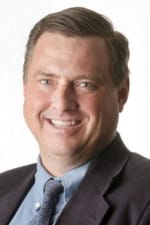Title: Content Director
Contact: 605-937-9398 / bart.pfankuch@sdnewswatch.org
Language spoken: English
Demographic expertise: South Dakota, including the Rapid City area, the Black Hills, rural towns and reservations
Topic expertise: agriculture, state government, education, rural issues, Indigenous people, poverty
Potential conflict of interest: Pfankuch serves on the board of the Oyate Prevention Coalition in Rapid City, which works to prevent substance abuse among Native American youth. He will recuse himself from reporting on the organization.
Biography: Pfankuch (pronounced FAN-cook) is Wisconsin native and former editor of the Rapid City Journal. He has worked for more than 30 years as a reporter and editor at newspapers in Wisconsin, Florida and South Dakota, including as reporter or editor at the Eau Claire Leader-Telegram and Capital Times in Wisconsin, and at the Florida Times-Union and Sarasota Herald-Tribune in Florida. He also is a syndicated writing coach who has presented at newspaper conferences across the country. Pfankuch has won more than four dozen state, regional and national journalism awards, including, while at News Watch, agricultural writer of the year from the North American Agricultural Journalists association in 2020, 2021 and 2023 as well as first-place reporting awards in the Great Plains Journalism Awards sponsored by the Tulsa Press Club and South Dakota NewsMedia Association. Pfankuch lives in Black Hawk.
Professional memberships: Investigative Reporters and Editors, North American Agricultural Journalists, South Dakota NewsMedia First Amendment Committee
Social platforms: X/Twitter; LinkedIn
Archive of work: South Dakota News Watch

Bart Pfankuch
Total 337 Posts
Beef producers in SD reeling from COVID-19 epidemic and price irregularities
The COVID-19 pandemic has turned a bad situation for South Dakota beef producers into a crisis in which low market prices and corresponding revenue losses may force some ranchers into bankruptcy.
Beef producers are seeing what in January was an $80 profit on each animal sold fall to a $75
Sioux Falls biotech firm rushing to develop coronavirus treatment
A Sioux Falls company — with its team of scientists and a herd of genetically engineered cows — is working quickly to develop and produce an effective treatment for people infected with the coronavirus.
SAb Biotherapeutics has emerged as a major player in the effort to generate a viable antidote to the
Land ownership question hovers over $185M Sioux Falls redevelopment plan
Questions about the ownership of a strip of land within the Sioux Steel Co. site in downtown Sioux Falls has created a new, unexpected hurdle for the proposed $185 million redevelopment of the property.
The land in question was once a channel of the Big Sioux River and has ownership
South Dakota News Watch wins grant to report on Native American issues
South Dakota News Watch has been accepted into a national grant and educational program that will enable News Watch to expand its coverage of the Native American community in South Dakota throughout 2020.
In February, News Watch was one of 12 journalism organizations selected for participation in the Solutions Journalism
SD hunter residency investigation and arrest create ‘nightmare’ for retired combat veteran
The legal language describing who qualifies as a South Dakota resident when it comes to in-state hunting privileges is laid out in state law, but the real-world definition is now murkier than ever.
Serenity still missing: One year later, SD girl’s fate unknown despite extensive search and investigation
Editor’s note: This story has been updated with a new version on April 4, 2023, headlined: 2019 mystery still causing misery.
ROCKERVILLE, S.D. – The most extensive investigation in western South Dakota and one of the most exhaustive searches in state history have failed to determine what happened to
A year after Serenity disappeared, broken hearts unable to heal
The passage of nearly a year since Serenity Dennard went missing has done little to soothe the hurt felt by those who love and miss her greatly.
In fact, the idea that Serenity has been gone for a year and yet nothing certain is known about her whereabouts is haunting
